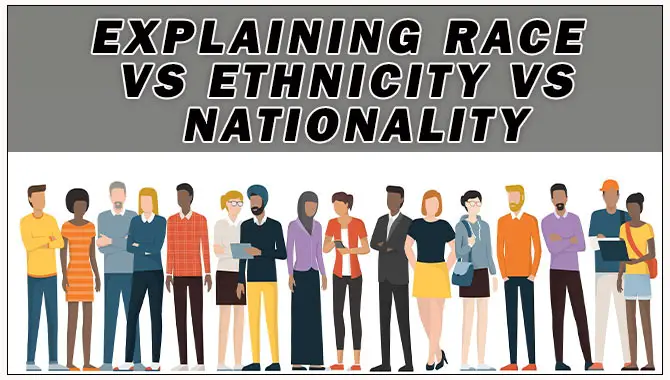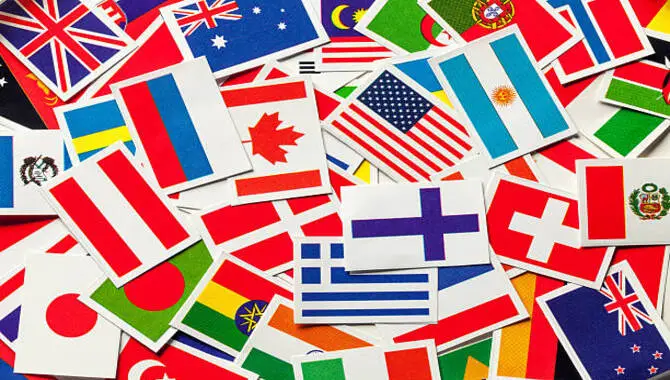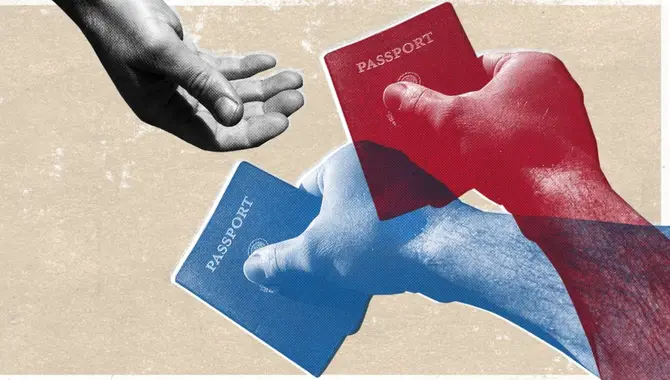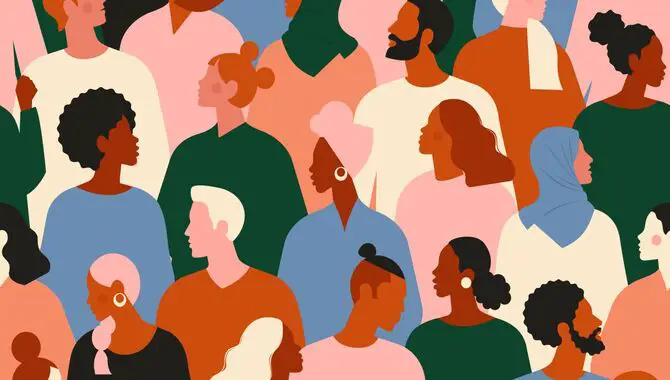https://thetruthfacts.com/chinese-vs-japanese-culture-similiteres/Ever felt confused about how people determine someone’s race, ethnicity, or nationality?
Ever wanted to know the difference between them? Well, you’re not alone. There needs to be more clarity surrounding these terms. But fret not! We’re here to help you understand it all a little better. Race, ethnicity, and nationality are important concepts we should be familiar with as people of color.
They allow us to explore our connections to others and how they shape our experiences as individuals in society. The more we understand them, the less confusion and conflict they cause. This blog discussed the basics of race, ethnicity, and nationalities. We hope it helps you better understand these terms and their relationship to one another.

What Is Race?

Race is a socio-biological category that refers to human populations’ physical and biological differences. As a result, people of different racial groups have distinct traits such as skin color, hair texture, facial features, and so on. In other words, racial groups are united by physical characteristics.
When discussing race ethnicity and nationality it is important to consider each term separately as they each have different meanings and implications. For instance, people of different ethnicities may share similar cultural practices but not necessarily racial characteristics (such as skin color). Similarly, people of different nationalities may share the same physical characteristics but not necessarily the same cultural practices or values (such as language).
A common misconception about ethnicity is that it is racial or national origin based. However, ethnicity isn’t limited to race or national origin alone; it includes a variety of subgroups such as skin color, language, and national origin.
Another key concept regarding ethnicity is that it cannot accurately be measured or counted. Not all ethnic groups have recognized statistics like ethnicities or races do, so there is no simple way to define it in terms of numbers or percentages.
What Is Ethnicity?
Ethnicity is a person’s cultural identity or group of people with origins in a particular place. It is often used to describe people of different nationalities, races, or cultures who share similar characteristics such as skin color, language, or national origin.
Ethnicity can be determined by one’s skin color, language, or national origin. Some ethnic groups may have common characteristics like religion, traditions, or ancestry. Ethnicities can play a role in one’s social identity and self-identity. It is sometimes used to discriminate against people.
Ethnicities can be sources of pride for some people. There are over 200 ethnic groups, each with unique traits and customs. The world’s largest ethnic group is the Chinese followed by Indians and people from Africa. Ethnicities aren’t limited to certain geographical areas or cultures but vary over time as people move around and mix with other groups.
Ethnicities cannot be accurately measured or counted but can be different depending on the country or region in which they live. Terms such as “ethnic minority,” “ethnically diverse community,” and “multicultural society” is often used to describe societies where different ethnic groups live together in harmony. Ethnicity is a person’s cultural identity or group of people with origins in a particular place.
- Ethnicity can be determined by one’s skin color, language, national origin, and other factors.
- Ethnicity plays a role in one’s social identity and self-identity.
- Ethnicity can also be used as a source of pride for some people.
What Is Nationality?

Nationality is an individual’s legal identity, which we determine by the country of their birth. In some countries, nationalities law regulates it and people with different nationalities may not have permission to marry or diplomatic staff restricted to certain nationalities.
Ethnicity refers to a person’s cultural heritage, which may or may not include national identity. Ethnicity is often a proxy term for national identity in studies of ethnic politics and nationalism. For example, people who identify as ethnic nation members can address them to have ethnic nationalism. Similarly, people who identify themselves as ethnic members of a particular ethnic group can address them to have ethnic nationalism.
Ethnicity is different from race in that it describes the physical characteristics of a person and not their ancestry or background. When people use the term “race” they often mean skin color or hair texture, but this is not always the case. Some people use it as a synonym for nation or culture, but others use it to refer to groups of human beings who share genetic markers such as ancestry or features such as skin color.
The Difference Between Race Vs. Ethnicity Vs Nationality

The differences between ethnicities, nationalities, and races are more clear-cut than people may think. The terms we often use interchangeably but have different meanings and connotations. Ethnicity is the cultural characteristics and traditions of a person’s origin.
Nationality refers to a country or people to which a person belongs. The terms we often use interchangeably but have different meanings and connotations. Ethnicity refers to the cultural characteristics and traditions of a person’s place of origin.
Nationality refers to a country or people to which a person belongs. Race generally describes a person’s physical features that distinguish them from others. The differences between ethnicities, nationalities, and races are more clear-cut than people may think. The terms we often use interchangeably but have different meanings and connotations.
1.Ethnicity Is Based On Shared Ancestry.

Ethnic groups are people with shared ancestry and who identify as ethnic minorities. In some cases, ethnic groups may not share the same ancestry as other members of their ethnic group. Instead, individuals within ethnic groups may have different ancestries or ancestry from other individuals in the group. We define nationalities by national borders and are typically based on citizenship. A person may have more than one nationality.
So, it is important to understand the differences between race, ethnicity, and nationality to understand better how people define themselves in social settings. Additionally, it is important to recognize that individuals may identify as ethnic minorities regardless of whether they share the same ancestry as other ethnic minority group members.
2.Nationality Is Based On Citizenship And Loyalty To A Country.

Nationality is the citizenship of a country and is based on citizenship and loyalty to that country. We can define it as the citizenship of a country, as well as the national identity of the people of that country. In general, people have one or more race categories, which they use to determine a person’s ethnic and national identity.
There are two main types of nationalities: citizenship and ethnicity. Citizenship is based on a person’s lawful permanent residence in a country and their contributions to society. Ethnic nationalities are groups of people whose cultural heritage differs from that country’s mainstream nationalities.
For example, people belonging to ethnic groups may speak different languages or have unique traditions and customs. They may also have distinct physical characteristics due to shared cultural practices or genetic heritage.
3.Race Is A Social Construct We Use To Categorize People Into Groups.

Race is a social construct that categorizes people into groups based on their physical features. Ethnicities are categories that describe the cultural experiences of a particular group of people. Nationality is a person’s legal identity, which may or may not reflect their race or ethnicity.
The differences between race, ethnicity, and nationality can be confusing, but understanding the different categories can help in the descriptive and accurate categorization of groups and individuals. In summary, race is a social construct of people into groups on their physical features. Ethnicity is a category that describes the cultural experiences of a particular group of people. Nationality is a person’s legal identity, which may or may not reflect their race or ethnicity.
4.Race Is A Social Construct.
The term “race” is a social construct to categorize people based on their physical characteristics. People classified as white have European ancestry, while people considered black have African ancestry. In addition to physical characteristics, race is often based on cultural or ethnic identity.
An ethnic group comprises people with common cultural traits and traditions. For instance, people who are of European descent are generally an ethnic group. However, they also can make up an ethnic group of people from different nationalities with shared cultural traits and traditions. Finally, an individual’s nationality is the country in which they were born. All of these factors can influence how someone self-identifies regarding race or ethnicity.
5.Ethnicity Is A Cultural Identifier.

Ethnic groups are cultural identifiers that refer to various people who share a common culture. An ethnic group comprises people with the same ancestral culture, language, or national identity. Nationality is the legal identity that a person has within a certain country.
Regarding ethnic groups, nationality refers to an individual’s legal citizenship in a country. Although these terms we often use interchangeably, they have different meanings. Ethnicity refers to cultural groups, while nationality refers to legal citizenship.
Thus, there is a difference between ethnicity and nationality. The key takeaway is that ethnic groups are cultural identifiers that share common characteristics such as ancestry, language, and/or national identity.
- There are over 200 ethnic groups in the world. The most common ethnic groups include Chinese, Americans, Indians, Arabs, and Europeans.
- The world’s largest ethnic group is the Chinese because of their large population and their cultural similarities with other ethnic groups around the world.
- Ethnicity is not limited to certain geographical areas or cultures. It can change as people move around and mix with other groups.
- Terms such as “ethnic minority,” “ethnically diverse community,” and “multicultural society” is often used to describe societies where different ethnic groups live together in harmony.
6.Nationality Is The Legal Identity Of A Person Or Country.
There are three types of nationality: national, citizen, and resident. Nationality is the legal identity of a person or country. As an example, a United States citizen is a person to live and works in the United States. However, ethnic groups can have different cultural values. Ethnicity describes the cultural identity of a person or group of people. An ethnic Chinese person may have different cultural values than an ethnic Italian person.
Finally, we cannot change ethnicities but can change nationalities by naturalization or by acquiring another citizenship. Resident refers to someone who legally lives in a particular country but does not have citizenship there. For example, a United States resident is a person who legally lives in the United States but does not have citizenship.
How To Deal With Race, Ethnicity, And Nationality Issues

In today’s world, ethnicities, nationalities, and racial groups are a part of our lives. However, it is important to know the difference between race, ethnicity, and nationality issues.
It is essential to be sensitive when discussing these issues, as people’s ethnicities, nationalities, and races impact their lives differently. It is vital to be aware of the challenges for individuals with race-ethnicity-nationality issues as they face discrimination and other hardships due to the color of their skin.
Besides, it is essential to address these issues as it can help make everyone feel equal. It is necessary to deeply understand each issue to create a diverse and inclusive society. It can be tough to stand up for yourself when someone makes racist or xenophobic remarks. But it’s important to know how to deal with these issues respectfully and civilly. Here are a few tips:
- Keep track of incidents happenings. Being aware of what’s going on will allow you to better understand why someone might have acted negatively towards you, and also allows you to form strategies for addressing the issue in the future.
- Document everything. Whether it’s an exchange of words or something more physical, make sure you record everything so there is no confusion about anything. This information can be useful if either party decides they want to take legal action later on down the line.
Determining Race, Ethnicity, And Nationality
Generally, we determine race by physical features such as skin color and hairstyle. Shared cultural backgrounds, such as language, religion, and traditions, determine ethnicity. Nationality by where someone was born or had citizenship. In the world of ethnicities, it is important to understand the differences between race, ethnicity, and nationality, as these terms we commonly use in daily life.
Race is a categorization we use to identify people with similar physical characteristics. These characteristics may include skin color, facial features, hair texture, and other characteristics found in people of a particular ethnic group or racial group. Ethnicity refers to the cultural traits and heritage of an ethnic group.
Nationality is a legal status to people by the country whose citizenship they hold. It is a term used for defining people whose national identity is based on their association with their country of birth or citizenship. The differences among race, ethnicity, and nationality can confuse those new to ethnicities. However, it’s important to understand these terms to understand ethnicities in daily life better.
Examples Of How Race, Ethnicity, And Nationality Can Affect A Person’s Life
Several things can affect a person’s life based on race, ethnicity, and nationality. These include social privileges and disadvantages, opportunities and challenges in education and work, health risks and benefits, legal rights and responsibilities, etc. Take a look at some examples to see how these factors play out in individual cases:
Social Privileges & Disadvantages: A person’s race or ethnicity can give them social privileges or disadvantages when it comes to accessing goods and services, being treated fairly by law enforcement or the government officials they interact with throughout their lives (e.g., getting preferential treatment during criminal proceedings because of their heritage), etc.
Education & Work Opportunities: Depending on someone’s race or ethnicity, they may have more opportunities than others to attend prestigious schools or gain employment within certain fields. They may also face barriers due to societal stereotypes about certain groups that prevent them from fully achieving their potential.
Health Risks & Benefits: Certain races experience different health conditions more often than others – this is called “disparity” medicine. Still, also disparities in medical care availability/accessibility for different communities across the U.S. Similarly, Asian Americans have higher rates of cancer than white Americans, even though tobacco use among Asians tends not to be as high as it is among whites.
- Race: Races are groups of people with similar physical features, such as skin color or hair texture.
- Ethnicity: Ethnicity refers to the ethnic heritage of a person. It can include nationalities, languages, and customs.
- Nationality: Nationality is the legal identity of a person, which may be based on race or ethnicity. The country of birth determines this.
Conclusion
To better understand the differences between race, ethnicity, and nationality, it is important to realize that they do not have an absolute definition. They are all socially constructed and vary by context. How we categorize people is always evolving as knowledge of different groups grows. It is a matter of personal choice as to how people self-identify.
If you cannot classify someone as belonging to one of these groups, try understanding their perspective. There is no set ‘right’ or ‘wrong’ way to categorize people; every individual’s experience is unique and valid. Since race, ethnicity, and nationality are all social constructs, it is helpful to be more mindful of their differences when discussing people’s ethnicities.
Frequently Asked Questions
1.Are There Any Other Factors Besides Race That Influence How Someone Looks?
Ans: Yes, ethnicity and national origin are other factors that can influence how someone looks. Ethnicity refers to a person’s cultural heritage, while national origin refers to a person’s place of birth. Ethnicity and national origin can both play a role in how someone looks.
2.Is Race A Social Construct Or Something That Exists Biologically?
Ans: Race is a social construct, and it does not exist biologically. Ethnicity, nationality, and race are different aspects of an individual’s identity. Each person has a unique mix of ethnicity, nationality, and race. There is no “right” or “wrong” answer when defining one’s identity.
3.Is It True That Most Of Us Are More Alike Than We Realize?
Ans: Yes, generally, people are more alike than they are different. This is often referred to as the “melting pot” theory. The “melting pot” theory states that immigrants and refugees are valuable addition to society because they help to make us more diverse.
4.How Does Race Affect Our Health?
Ans: Some evidence suggests that race may play a role in our health. Studies have shown that people of color are more likely to experience health disparities, including higher rates of disease, death, and poverty. Ethnicity and nationality can also affect our health. Ethnicity refers to the heritage and culture of a person or group. Nationality refers to a person’s legal status as an inhabitant of a particular country.
5.Is There A Genetic Component To Race Or Ethnicity?
Ans: There is no one answer to this question as it is a complex and controversial topic. Some people believe that race and ethnicity are social constructs on perceived differences between groups. Ethnicity, on the other hand, refers to the cultural heritage of a person or group.

I’m a writer and blogger who loves to talk about entertainment, culture, and relationships. I love to share my thoughts and insights on these topics, and I’m always looking for new ways to engage with my readers. I’m also a big fan of learning new things, so I’m always exploring new areas of interest.
